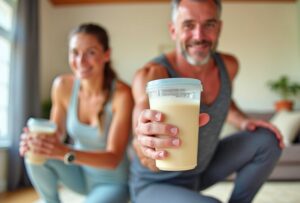
The Effects of Cold on Joint Pain
Many of us have heard friends or family say that they suffer from increased aches and pains in their muscles and joints during cold, wet or unsettled weather. Some even have personal experience with this. Others dismiss it as an old wives’ tale, but it’s a claim that pops up in cultures all over the world, and throughout history.
Hippocrates noted, around 400BC, the effects of winds and rains on chronic diseases in his book Air, Water, and Places.
In Asia and China, “rheumatism” is translated as “wind wet disease.”.
In Shakespeare’s A Midsummer Night’s Dream, Titania speaks of “contagious fogs” and “distemperature” in which “Rheumatic diseases do abound”.
Note that “rheumatism” is an old-fashioned general term for aches and pains anywhere in the body. It is no longer used in medical literature, but today ‘Rheumatology’ means the study of joint diseases, including the many types of arthritis.
While it can be difficult for scientists to analyze something so subjective as people’s experience of pain when conducting a study of the effects of cold, some research is definitive. Changes in atmospheric pressure can be responsible for increased pain, specifically just before or during a spell of low pressure, and the cold and wet conditions that come along with it. As air pressure drops, air molecules and gases expand. Low pressure causes gases and fluid in our joints to behave in a similar way. This puts extra, unneeded pressure on the nerves and in turn, sensitizes them to pain.
Going outside in the sun, and specifically for exercise rarely happens over the winter months. We stay inside and hunch ourselves up when we are cold, which in turn makes our muscles tighter and less mobile. It’s vital that Vitamin D is supplemented, so that it can fortify our bones and cartilage. Studies have shown that osteoarthritis patients with low levels of Vitamin D experience a worsening of their symptoms. We also know that warm muscles are longer and more supple. This is why we “warm up” before exercising to avoid injury, and why we apply heat to sore muscles and joints to relieve pain.
The weather affects musculoskeletal pain in many ways:
• Low pressure puts unneeded pressure on joints
• Low Vitamin D (caused from lack of sun exposure) amplifies existing pain
• Cold weather creates tight and stiff muscles that cause discomfort and increase the chance for injury
Being mindful and aware in the winter months can save your knees, ankles, elbows, and knuckles. The best holistic medicine in Springfield Missouri to prevent joint pain during cold weather is to stay as active as possible to keep your muscles loose and warm, heat any sore joints caused by low barometric pressure, and supplement with Vitamin D to constantly repair your bones and muscles.
Winter doesn’t have to mean extra sensitive joints or extra joint pain. Take the necessary steps to be able to enjoy colder weather.









